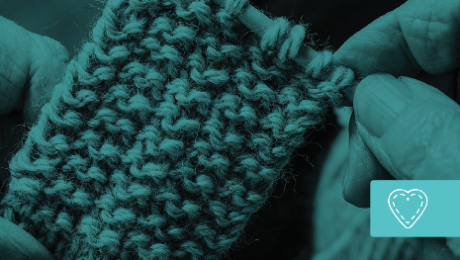HELPING SENIORS CREATE AN EMERGENCY CONTACT PLAN
- Published in ALZHEIMER, CAREGIVERS, DEMENTIA, IN HOME CARE
WHAT SENIORS NEED TO KNOW ABOUT OSTEOPOROSIS
How Osteoporosis Affects Seniors
It’s likely that more than 200 million people are living with osteoporosis—especially common among older women. Learn how to prevent or manage it this National Osteoporosis Month.
It’s likely that more than 200 million people are living with osteoporosis, a medical condition marked by having fragile bones. This condition is especially common among older women, and it can be dangerous. (NCBI)
May is National Osteoporosis Month. Since seniors are at greater risk of this disease, it’s important to learn how to prevent or manage osteoporosis.
The Basic Facts of Osteoporosis
What Is Osteoporosis?

Everybody relies on their bones for strength, support, and more. Osteoporosis is a disease that weakens bones. As a result, bones are fragile and susceptible to risks like breaks and fractures. When combined with conditions like arthritis, osteoporosis can make tasks like moving around risky and painful.
Potential Outcomes of Osteoporosis:
- Breaks and fractures
- Complications resulting from breaks & fractures
- Poor posture
- Limited mobility
What Causes It?
For many people, osteoporosis is a side effect of aging. However, it can be exacerbated and accelerated by conditions like rheumatoid arthritis, stroke, and some cancers. Certain medications and negative habits, like poor nutrition, can also contribute.
Diagnosing Osteoporosis
Osteoporosis is diagnosed through a bone mineral density (BMD) test. Other exams and laboratory tests are sometimes administered as well. (National Osteoporosis Foundation)
![]()
WHAT SENIORS NEED TO KNOW ABOUT OSTEOPOROSIS
Osteoporosis Awareness Month
Home Care Tip
Since seniors are at greater risk of osteoporosis and falling, it’s important for you to learn how to avoid falls, including arranging a home safely and knowing how to get up and down safely. (National Osteoporosis Foundation)
Symptoms of Osteoporosis
If you are experiencing any of the following signs of bone loss, it is essential you be screened for osteoporosis and other bone-related diseases:
- Loss of height
- Aches without injury
- Poor posture
- Oral bone loss conditions
- Regular fractures
(WebMD)
Risk Factors
- Being a woman
- Getting older
- Being of Caucasian or Asian descent
- Family history
- Small body frame
- Unhealthy diet
- Lack of exercise
(Mayo Clinic)
Preventing and Managing Osteoporosis
Prevention Tips
Preventing osteoporosis protects seniors from bone-related problems. Consider incorporating the following:
- Calcium
- Vitamin D
- Regular exercise
- A balanced diet
Managing Osteoporosis
- Learn to prevent falls and what to do in case of a fall
- See a doctor for regular monitoring of disease progression
- Eat a bone-healthy diet and follow an exercise regimen
- Take medication to treat osteoporosis
(American Family Physician)
References:
- Published in ALZHEIMER, CAREGIVERS, DEMENTIA, IN HOME CARE
UNDERSTAND CHOLESTEROL AND ITS EFFECTS ON IN HOME SENIORS CARE
Helping Seniors Maintain Healthy Cholesterol Levels
Cholesterol levels can be a source of stress for seniors. Here’s what seniors and their loved ones need to know.

Image extracted from 0319-Cholesterol-CMYK.pdf: 0319-Cholesterol-CMYK-page1-header.jpg
About 37 percent of U.S. adults have a higher than recommended LDL cholesterol level. Since this can increase risk of heart disease or stroke — and since seniors are already at higher risk of such health problems — it’s important for aging individuals to understand cholesterol. (Source: CDC)
What Cholesterol Is All About
Although many people think of cholesterol as something negative to avoid, cholesterol is actually a natural substance the body makes on its own. It helps cells make hormones, digest food, and more. Besides the cholesterol your body makes, you can also consume cholesterol in eggs, meat, and other foods.
There are three types of cholesterol doctors measure:
- High Density Lipoprotein (HDL)
- Low Density Lipoprotein (LDL)
- Triglycerides
HDL is considered “good” cholesterol because its function is to clear out LDL (“bad”) cholesterol, which can build up plaque in the arteries. Triglycerides can also accumulate and affect the heart. When doctors give patients their “cholesterol level,” higher HDL numbers are good news; higher LDL and/or triglyceride numbers are commonly referred to as “high cholesterol” and increase the risk of heart disease. (Source: MedlinePlus)
![]()
![]()
C A R E G I V E R S
Maintaining Healthy Cholesterol Levels
How to Manage Cholesterol Levels
Seniors tend to be at an elevated risk of heart disease simply because of the aging process. When a senior also has high cholesterol, their heart disease risk increases. It is important for seniors to manage their cholesterol levels in order to keep arteries clear and functional.
Here’s how cholesterol can be managed:
- Medication: There are a few medications that help lower bad cholesterol levels and increase HDL. The most common medications are called statins.
- Dietary Changes: Since cholesterol levels can be affected by what you eat, seniors with high LDL or triglycerides should:
- Avoid unhealthy fats
- Eat healthier fats
- Get plenty of fiber
- Reduce sugar intake
- Reach a healthy weight
- Exercise Regularly: The body can manage conditions like high cholesterol better if you are physically active. Exercise stimulates many important natural processes, and simply taking walks is a great start.
(Source: WebMD)
Risks Associated with Poor Cholesterol Levels
The consequences of having too much LDL cholesterol include:
- Clogged arteries
- Increased risk of heart disease
- Higher risk of stroke
- Reduced function of the cardiovascular system
(Source: MedicineNet)
Other Heart Disease Risk Factors
Besides high cholesterol, other risk factors for heart disease among seniors include:
- Race/ethnicity
- Smoking
- Conditions like diabetes or obesity
- Lack of physical activity
- Genetics
- High blood pressure
(Source: WebMD)
Home Care Tip
Seniors can often have high cholesterol without showing any symptoms. Encourage seniors to visit doctors regularly and receive recommended blood tests to check cholesterol levels, especially if they are at elevated risk due to obesity or a poor diet.
References:
- http://www.clearcareonline.com
- https://www.cdc.gov/cholesterol/facts.htm
- https://medlineplus.gov/cholesterol.html
- https://www.webmd.com/cholesterol-management/guide/steps-to-reduce-cholesterol
- https://www.medicinenet.com/cholesterol_management/article.htm
- https://www.webmd.com/heart-disease/risk-factors-heart-disease

- Published in ALZHEIMER, CAREGIVERS, DEMENTIA, IN HOME CARE
ALLERGIES AND SENIOR CARE
- Published in CAREGIVERS, DEMENTIA, IN HOME CARE
FINDING THE RIGHT MOBILITY AIDS FOR SENIORS
Mobility Aids for Seniors
Many seniors experience difficulty getting around independently. Mobility aids can offer stability and support. If a senior is unstable performing motions like sitting down or walking, it is essential to find mobility aids that fit their needs and ensure their safety.
Approximately 1/3 of older people living at home fall at least once a year. It’s common for seniors to need mobility aids for safety and support. (Source: MerckManuals)
Common Mobility Aids for Getting Around
For seniors living at home and maintaining a high level of independence, common mobility aids are designed to help them get around. Options include:

Canes
Designed to increase stability and compensate for minimal balance issues.

Walkers
Help support those with significant stability problems but moderate upper body strength.

Rollators
Designed for those with severe stability issues who lack upper body strength and balance.

Power Scooters
Support those who cannot walk long distances but have upper body control and stamina.

Wheelchairs
Offer mobility to those unable to walk safely on their own. Variations of steering ability available.
(Source: Aging Care)
FINDING THE RIGHT MOBILITY AIDS FOR SENIORS
C A R E G I V E R S
Possible Results of Senior Falls
Sometimes mobility issues are just inconvenient for seniors. Other times they put seniors at risk of falling. Falls can be very dangerous for the aging. Falling can result in:
- Bruises
- Fractures
- Breaks
- Need for physical therapy
- Surgical correction
- Hospitalization
- Death
(Source: MerckManuals)
Home Care Tip:
Style matters. If seniors seem unwilling to accept mobility aids, consider options that look sleek or fit their sense of style. Sometimes a device that feels personalized makes a difference for seniors struggling to accept necessary changes.
Mobility Problem Risk Factors
A number of issues can increase seniors’ risk of struggling with mobility and balance, including:
- Diminished eyesight
- Diabetes or heart disease
- Thyroid problems
- Nerve issues
- Medications
- Dizziness
- Muscle weakness
- Gait changes
- Postural hypotension
- Foot pain, deformities, or poorly-fitting footwear
- Confusion or memory problems
- Environmental factors like lack of lighting
(Source: NIA)
Paying for Mobility Aids
Insurance companies, as well as some grant or senior care nonprofits, may help cover the costs of mobility aids. Ask a doctor or local agency for the aging for ideas on where to start seeking financial assistance for mobility devices.
(Source: DailyCaring)
Mobility Aids for a Safer Home Environment
Some mobility aids aren’t designed to support long-range motion. Instead, they make the home environment safer and increase independence with specific tasks. Consider installing:
- Rails along stairs, near bathroom fixtures, in hallways, etc.
- Tub/bath transfer seats or benches
- Supportive seat cushions
- Grab handles for getting in/out of a car, bed, couch, or chair
- Rolling over-bed or over-couch tables
- Additional lighting or voice command lighting to improve visibility
- Non-slip flooring that is securely tacked down
- Stairlift
- Ramps to replace stairs
(Source: ScripHessCo)
© 2023 Mobility Aids Guide
- Published in ALZHEIMER, CAREGIVERS, DEMENTIA, IN HOME CARE
FUN CRAFTS TO DO WITH THE ELDERLY DURING HOLIDAYS
- Published in ALZHEIMER, CAREGIVERS, DEMENTIA, IN HOME CARE
CAREGIVER BURNOUT: SIGNS & COPING TIPS
Being a caregiver can be an exhausting and difficult task. It’s important to recognize caregiver burnout and cope healthily. Understanding caregiver burnout symptoms and coping mechanisms can help make caregiving more enjoyable and fulfilling. About 1 in 3 adults serves as an informal caregiver to another adult, like an aging parent or disabled relative. Although many find the opportunity to care for a loved one to be a privilege, it can also be demanding. Here is
how to cope effectively.
- Published in ALZHEIMER, CAREGIVERS, IN HOME CARE
Caregiver Self-Care And Stress Management
Managing your Care when Caring for Others
Caregivers who care for individuals with Alzheimer’s or Dementia should manage their stress to prevent burnout and keep their caregiving optimism high.
Challenges involved in caring for someone with these and other conditions. Caring for individuals with Alzheimer’s or dementia can cause special challenges for the caregiver
COMMUNICATION
Communication can be especially challenging between the caregiver and patient. Because an individual with Alzheimer’s or dementia may not remember names, conversations or events, they may repeat questions, have difficulty finding the right words, easily lose their train of thought and speak less frequently.
BEHAVIORS
Individuals with Alzheimer’s or dementia can exhibit behavior changes including depression, agitation, aggression, confusion, and suspicion. Caregivers can remain calm and patient and accept behaviors as a part of the disease in order to better work through it.
MEMORY LOSS
Memory loss may be mild in the early stages, but as the disease progresses, so will the level of memory loss. Caregivers can be called the wrong name, not be recognized, and more as individuals lose their memory.
Managing Caregiver Stress
Providing care for individuals in these and other conditions can be extremely fulfilling and challenging at the same time. It’s important that caregivers take care of themselves so they can remain hopeful, energetic and optimistic to provide proper care.
Signs of Caregiver Stress (womenshealth.gov)
- Feeling overwhelmed, frustrated and angry
- Making mistakes when giving care
- Feeling alone, isolated, or deserted
- Not getting enough sleep
- Getting too much sleep
- Gaining or losing a lot of weight
- Feeling tired frequently
- Losing interest in activities you used to enjoy
- Becoming easily irritated
- Feeling constantly worried or sad
- Having headaches or body aches often
Self-Care and Stress Management Tips
It’s important for caregivers to take care of themselves, both physically and emotionally even while they care for others. Finding the time to care for yourself with proper nutrition, exercise, and sleep—as well as getting support from family and friends will help caregivers relieve stress and can prevent burnout.
Physical Ways To Manage Stress
- Get regular exercise
- Participate in extracurricular activities
- Eat a balanced diet
- Pamper yourself
- Meditate
- Stay on track of your own health
- Get plenty of sleep
- Get regular doctor check ups
- Mental/Emotional ways to manage stress
- Talk with supportive friends
- Get support from family members
- Celebrate small victories
- Applaud your own efforts
- Enjoy a good laugh
- Join a caregiver support group
- Get help when you need it
- Set routines and stay organized
Home Care Tip:
There are many community resources available for caregivers such as adult day care programs, in-home assistance, and meal delivery programs. Contact the Alzheimer’s Association or use this (alz.org/CRF) Resource Finder to locate dementia care resources near you.
- Published in CAREGIVERS, IN HOME CARE
4 TIPS FOR CARING FOR AGING VETERANS
How to Care for our Veteran Population
Caregivers can help enhance the quality of life for veterans by advocating on their behalf and helping them find services for their unique needs.
Veterans have sacrificed everything to protect and serve our country. They have served in conflicts around the world for the freedoms that we have today. It is essential that veterans are cared for both physically and mentally, both during and after their time in the service. Throughout the duration of their lives, we should continue to honor and care for them.
According to the 2012 U.S. Census brief (census.gov), there were more than 12.4 million veterans ages 65 and older. With veterans and the population in general having a greater life expectancy than in years past, it’s important that our care can help sustain the public services and special support that these individuals need.
1. Getting the right care
The type of care that veterans may need will vary and can include routine physical care, traumatic brain injury care, treatment for post traumatic stress disorder and other emotional needs, rehabilitation, nutritional and dietary needs, wound injury and trauma, and more. The diversity and uniqueness of the care is as diverse and unique as the individuals who have fought for our country.
2. Paying for care
The Department of Veterans Affairs (VA) provides benefits and services for a variety of issues that veterans face.
Compensation can include disability compensation, Special Monthly Compensation (SMC), Adapted Housing grants (benefits.va.gov), Service-Disabled Veterans’ Insurance (benefits.va.gov), Veterans’ Mortgage Life Insurance (benefits.va.gov), Aid and Attendance (A&A) and Housebound care (benefits.vs.gov), Extended or long-term care and geriatric care.
Much of this compensation is a tax free monetary benefit paid to veterans and/or their spouses, surviving spouses and parents. Which programs each Veteran qualifies for will depend on their unique circumstances.
3. Supporting Mental and Emotional Health
Many veterans need more than just physical care. They need mental and emotional care to help them in dealing with PTSD, depression, suicidal thoughts, hopelessness, anxiety and other issues.
The VA offers mental health care for veterans (mentalhealth.va.gov), and is committed to a recovery-centered approach. Veterans can receive primary care for mental illnesses or receive more intensive treatment in specialty mental health care if necessary.
4. Activities to increase quality of life
Caregivers can help improve the overall quality of life for veterans on a day-to-day basis by engaging with them in different activities.
- Allow them to share stories: Ask veterans stories about when they were younger. Many of them will love to re-live tales from their past and share them with someone else.
- Let them give back: Although veterans have already given so much, it can be important for them to continue this spirit of giving to others. Find a place where they can volunteer. It can help boost confidence and give a sense of purpose.
- Help them find community: Military life has a built-in community and many veterans may miss that once they are no longer active. Help them find a group where they can connect with others and share similar experiences.
- Keep a routine: Many veterans are used to regimented routines and thrive off of schedules. Keep a regular routine each day and allow them to know the schedule. This can give them a sense of peace.
For years these veterans were advocates on behalf of us—whether it was directly or indirectly. We have all benefited from the sacrifices they have made. Caregivers can be their advocates by helping them navigate through various VA benefits, finding mental health solutions and doing daily activities with them that increase their quality of life.
Home Care Tip:
Caregivers should pay attention to veterans and what their individual needs are. Make sure to also recognize the abilities that veterans still have and to acknowledge those as well.
- Published in CAREGIVERS, IN HOME CARE
- 1
- 2










